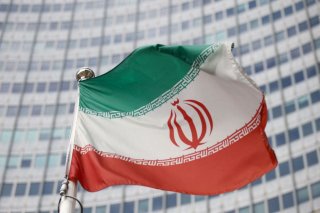As Vienna Nuclear Talks Draw to a Close, Echoes of Past Concerns Arise
In Vienna, high-level diplomatic talks are meant to address Iran's ability to produce a nuclear weapon. But will they work?
On Thursday, U.S. officials claimed they had made “substantial progress” toward reaching an agreement with Iran over the future of the country’s nuclear program after a months-long diplomatic standoff between Washington and Tehran.
Despite this progress, however, ongoing issues between the two remain, putting the outcome of the final negotiating session in question.
The Vienna negotiations have continued since late 2021 and are currently in their ninth round. The discussions are being held between Iran, Germany, and permanent members of the UN Security Council. Thus far, the Iranian delegation has refused to engage directly with the United States, blaming Washington for the country’s economic misfortunes following President Donald Trump’s withdrawal from the original deal, the “Joint Comprehensive Plan of Action” (JCPOA), and his subsequent reimposition of sanctions in 2018.
A State Department spokesperson claimed that, “if Iran shows seriousness, we can and should reach an understanding on mutual return to full implementation of the JCPOA within days,” according to Agence France-Presse.
The spokesperson added, however, that “anything much beyond that”—e.g., an agreement attempting to resolve other issues in the U.S.-Iran relationship, such as Iran’s ballistic missile program or its support for Tehran-aligned private militias in neighboring countries—“would put the possibility of return to the deal at grave risk.”
While Trump’s “maximum pressure” sanctions caused severe damage to the Iranian economy and led to an increase in tensions in the Persian Gulf region, it also allowed Iran to return to its enrichment of uranium—a process the country had largely abandoned following the JCPOA’s implementation in 2015.
By now, Iran is estimated to have nearly enough highly-enriched uranium to create a nuclear weapon. Western diplomats have urged the creation of a settlement before the threshold is crossed; French foreign minister Jean-Yves Le Drian described the timeframe as “a matter of days.”
Further, Iran has never acknowledged that it intends to construct a nuclear weapon, although blueprints for nuclear devices and nuclear-capable missiles have been found and stolen from Iranian government computers.
Iranian authorities have requested a guarantee from the administration of President Joe Biden that the United States would remain within the deal for the foreseeable future to avoid a repeat of Trump’s 2018 JCPOA withdrawal.
However, nearly two hundred members of the House of Representatives, all Republicans, published a letter earlier in the week explicitly announcing that “they would work to obstruct a renewed deal if certain controversial measures were not included.” This effectively indicates that a potential agreement is vulnerable to cancellation if the GOP reclaims the White House.
Trevor Filseth is a current and foreign affairs writer for the National Interest.
Image: Reuters

